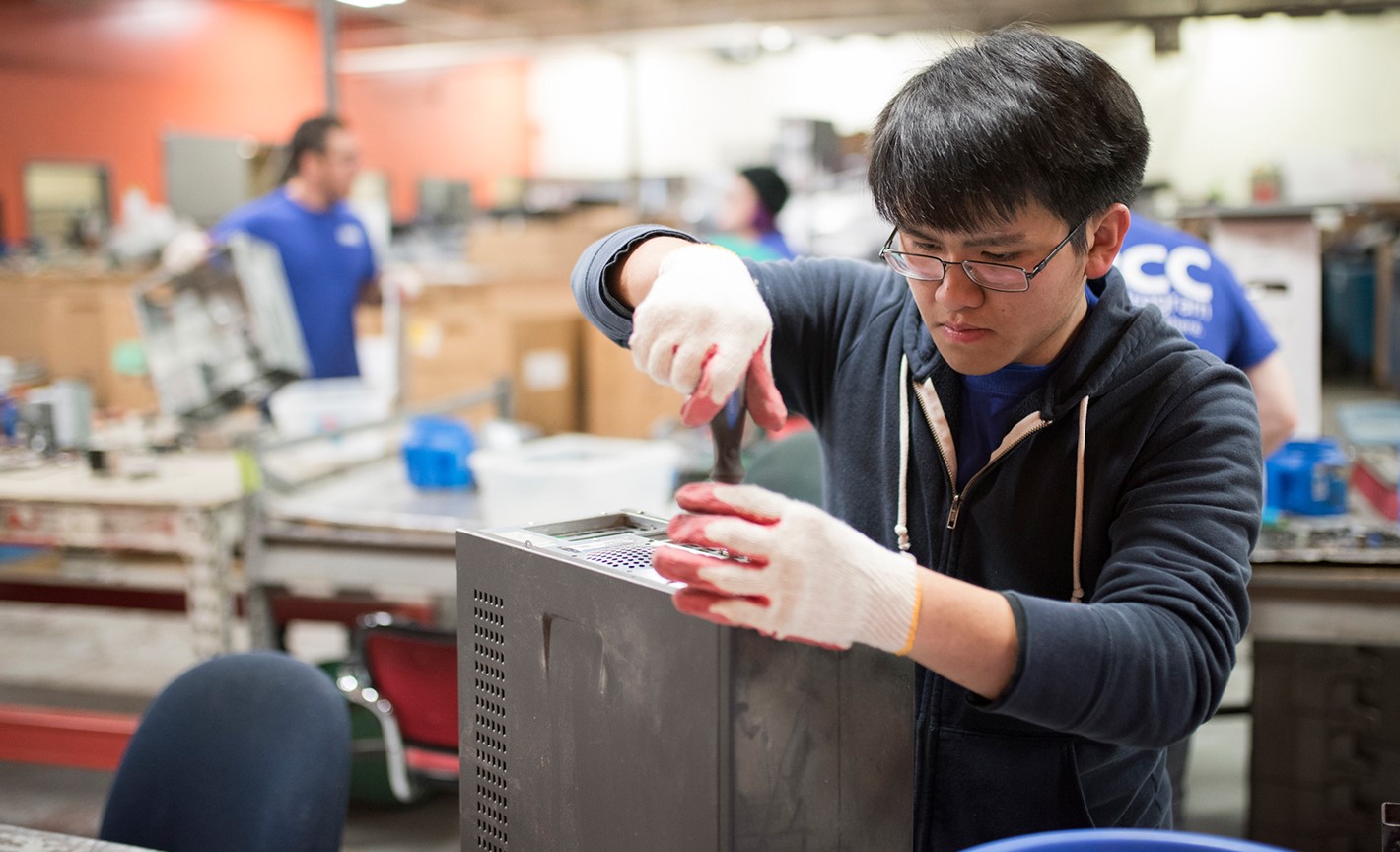Today we are talking about free electronic recycling san diego. In an era where technological advancements rapidly render gadgets obsolete, the question of responsible electronic waste disposal becomes increasingly crucial. San Diego, a vibrant hub of technological innovation, faces a significant challenge in managing electronic waste (e-waste). This guide aims to provide comprehensive information on free electronic recycling san diego. emphasizing its importance, benefits, and the available resources for residents and businesses.
The Importance of Electronic Recycling
Electronic devices contain hazardous materials such as lead, mercury, cadmium, and flame retardants, which can cause severe environmental damage and health risks if not disposed of properly. Recycling these items helps to:
- Prevent Environmental Pollution: Proper recycling prevents toxic substances from leaching into the soil and water, thus protecting ecosystems and human health.
- Conserve Natural Resources: By reclaiming valuable materials from old electronics, we reduce the need for mining new resources, thereby conserving raw materials and reducing energy consumption.
- Promote Economic Growth: Recycling programs create jobs and contribute to the economy by generating revenue from recycled materials and reducing waste management costs.
How to Recycle Electronics in San Diego
free electronic recycling san diego offer making it convenient for residents and businesses to dispose of their e-waste responsibly.
1. E-Waste Collection Events
San Diego frequently hosts e-waste collection events where residents can drop off their unwanted electronics. These events are typically free and open to the public. They accept a wide range of items, including computers, monitors, televisions, printers, and mobile phones.
2. Recycling Centers
Several certified e-waste recycling centers operate throughout San Diego. These centers ensure that electronic waste is processed and recycled according to environmental regulations. Some notable centers include:
- All Green Electronics Recycling: Offers convenient drop-off locations and scheduled pick-up services for businesses.
- Recycle San Diego: Provides free drop-off and pick-up services, ensuring that e-waste is handled responsibly.
- E-Waste Center: Specializes in recycling various electronic devices, with a commitment to environmental sustainability.
3. Retailer Take-Back Programs
Many free electronic recycling san diego offer take-back programs where consumers can return old electronics for recycling. Companies like Best Buy and Staples accept a variety of electronic items, often regardless of where they were purchased. These programs are an excellent option for those looking to recycle small electronics and accessories.
4. Municipal Programs
San Diego’s municipal programs also play a significant role in e-waste recycling. The city’s Environmental Services Department (ESD) provides information and resources on how to recycle electronics. Residents can take advantage of the Miramar Recycling Center, which accepts a wide range of e-waste.
Accepted Items for Recycling
Understanding what items are accepted for recycling is crucial to ensure that your electronic waste is handled properly. Generally, most recycling centers and programs in San Diego accept:
- Computers and Laptops: Including desktops, notebooks, and all peripherals.
- Monitors and Televisions: Both CRT and flat-screen models.
- Mobile Devices: Cell phones, tablets, and accessories.
- Small Appliances: Such as microwaves, toasters, and vacuum cleaners.
- Office Equipment: Printers, scanners, copiers, and fax machines.
- Audio/Video Equipment: Stereos, speakers, DVD players, and cameras.
It is always best to check with the specific recycling facility or program to confirm what items they accept and any potential restrictions.
Preparing Electronics for Recycling
Before recycling your electronics, it is important to take a few preparatory steps to ensure the process is smooth and secure:
- Data Wiping: Remove all personal data from your devices. This can be done by performing a factory reset or using specialized software to ensure data is completely erased.
- Remove Batteries: Batteries, especially lithium-ion types, should be removed and recycled separately if possible, as they require different handling processes.
- Organize Cables and Accessories: Bundle cables and accessories together to make recycling easier and more efficient.
The Environmental and Economic Impact of E-Waste Recycling
Recycling electronic waste has far-reaching environmental and economic benefits. Environmentally, it reduces the volume of waste sent to landfills, lowers greenhouse gas emissions, and minimizes the risk of soil and water contamination. Economically, it contributes to the creation of green jobs, supports the recycling industry, and can even generate revenue from the recovered materials.
Challenges in Electronic Recycling
Despite the numerous benefits, electronic recycling faces several challenges:
- Consumer Awareness: Many people are unaware of the proper methods for disposing of electronic waste, leading to improper disposal and environmental harm.
- Recycling Costs: While many services are free for consumers, the actual process of recycling electronics is costly, requiring sophisticated technology and processes.
- Legislative Hurdles: Inconsistent regulations across different regions can complicate the recycling process and discourage participation from businesses and individuals.
Future Trends in Electronic Recycling
The future of free electronic recycling san diego looks promising, with advancements in technology and increased awareness driving improvements in e-waste management. Some emerging trends include:
- Improved Recycling Technologies: Innovations in recycling technology are making it easier to recover valuable materials from electronic waste, increasing the efficiency and effectiveness of the recycling process.
- Extended Producer Responsibility (EPR): Policies that hold manufacturers accountable for the entire lifecycle of their products are encouraging more sustainable product designs and improved recycling efforts.
- Consumer Education Programs: Increased efforts to educate consumers about the importance of electronic recycling and how to do it properly are expected to enhance participation rates.
Conclusion
Free electronic recycling in San Diego is a vital service that not only protects the environment but also supports the economy and promotes public health. By taking advantage of the available resources, San Diego residents and businesses can contribute to a more sustainable future. Remember to properly prepare your electronics for recycling and stay informed about the latest trends and programs in e-waste management.




